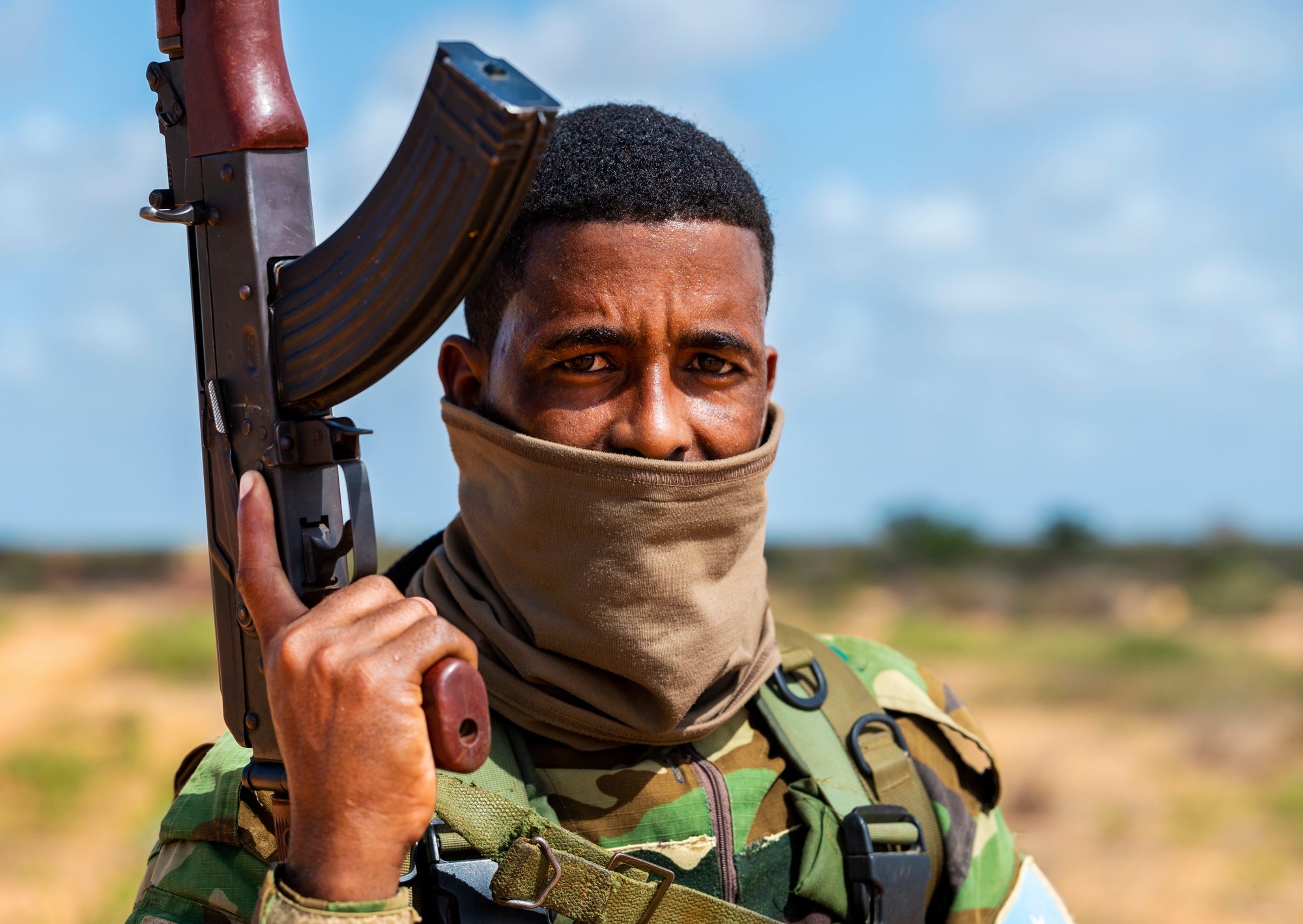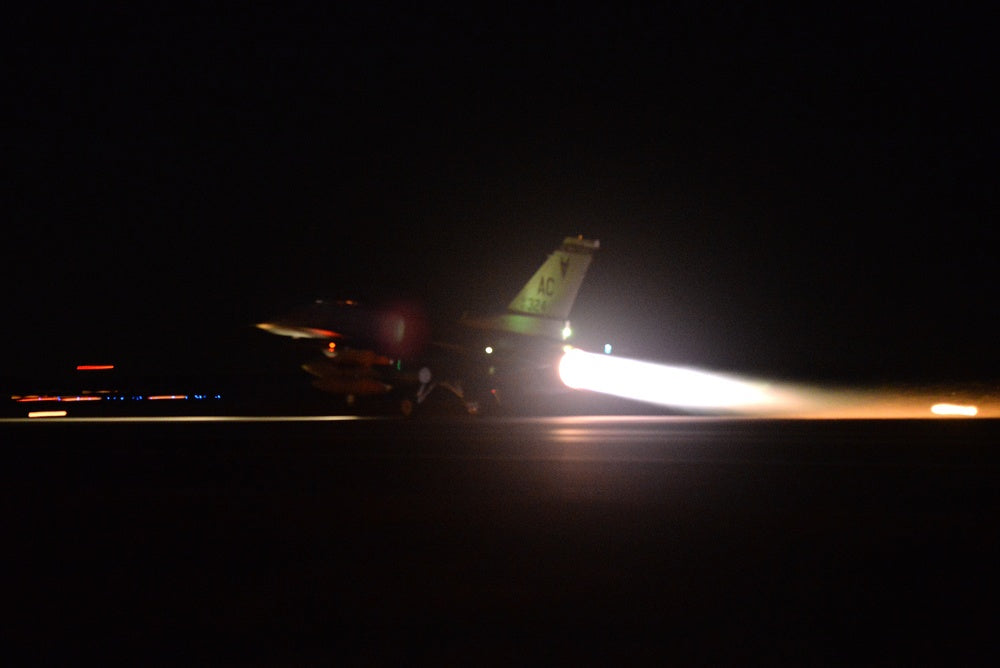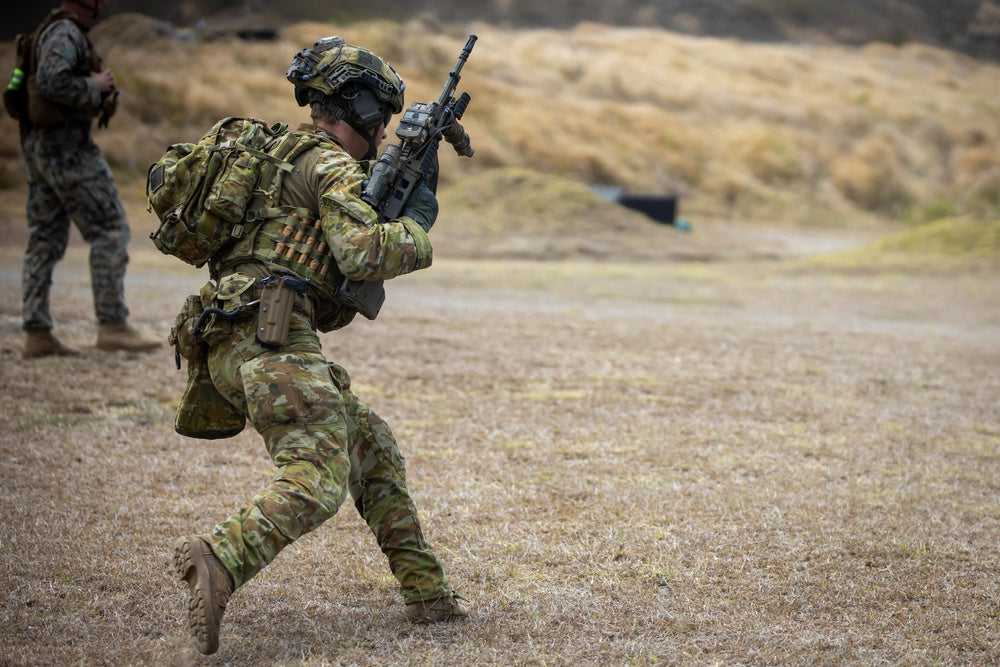
Clash between Somali army and al-Shabab kills 17, witness says
PHOTO CAPTION: A Somali soldier is seen during training with U.S. troops, May 18, 2021. (U.S. Air Force photo by Staff Sgt. Zoe Russell via U.S. Defense Visual Information Distribution Service)
By Feisal Omar and Abdi Sheikh
MOGADISHU (Reuters) - Fighters from Somalia's al Shabaab insurgent group attacked a military base on the outskirts of a town in the centre of the country, leading to at least 17 deaths, a resident said.
The attack on Masagawa, about 300 km (190 miles) north of Mogadishu, came days after al Shabaab attacked a base housing Ugandan forces from an African Union peacekeeping mission in Bulamarer, 130 km (80 miles) southwest of the capital.
"I have seen 17 dead people including the attackers and the attacked. The fighting has moved into the forest. The town is calm now and under government control," Hussein Nur, a resident of Masagawa, told Reuters by phone.
Captain Abdullahi Mohamed, a military officer in Masagawa, confirmed the attack and said 12 al Shabaab fighters had died, but he did not know how many troops were dead.
"Fierce fighting went on for hours on the edge of the town. So far, I know we lost soldiers but I have no exact figure. We repulsed al Shabaab and now we are pursuing them in the forest," Mohamed told Reuters.
The Somalia National Army said on Twitter it had prevented an attack on the town itself, and killed al Shabaab fighters, but did not say how many.
Al Qaeda-linked al Shabaab has been fighting since 2006 to topple Somalia's central government and establish its own rule based on its strict interpretation of Islamic Sharia law.
It has launched significant attacks against hotels, military bases and government establishments in despite a relatively successful government push back.
The group said in a statement it had killed 73 soldiers in the attack, targeting those who had returned from training in Eritrea.
Al Shabaab tends to give casualty figures in attacks that differ from those issued by the authorities.
(Writing by George Obulutsa; Editing by Giles Elgood)









